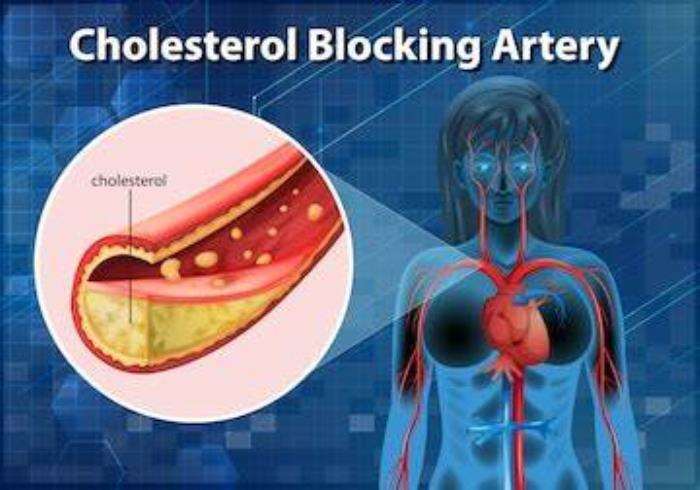Coronary artery disease (CAD) is a common and serious condition that occurs when the coronary arteries, which supply oxygen-rich blood to the heart muscle, become narrowed or blocked. This typically results from the buildup of fatty deposits, known as plaques, on the inner walls of these arteries—a process called atherosclerosis. CAD is a leading cause of heart attacks and other cardiovascular complications, making it crucial to understand its causes and risk factors for effective prevention and management.
Medical disclaimer: This content is for general awareness and does not replace a doctor’s consultation. For diagnosis or treatment decisions, consult a qualified specialist.
The Role of Atherosclerosis in Coronary Artery Disease
Atherosclerosis is the primary underlying cause of CAD. It begins with the accumulation of cholesterol, fat, and other substances in the arterial walls, forming plaques. Over time, these plaques can harden, reducing the elasticity of the arteries and restricting blood flow to the heart. In some cases, plaques may rupture, triggering blood clots that can completely block the artery, leading to life-threatening events like a heart attack.
How High Cholesterol Contributes to Artery Blockages
High levels of low-density lipoprotein (LDL), often called "bad" cholesterol, play a central role in plaque formation. LDL particles infiltrate the arterial walls, prompting an inflammatory response that accelerates the development of atherosclerosis. Managing cholesterol levels through diet, exercise, and medication is essential to slowing the progression of CAD.

Hypertension: A Silent Contributor to Coronary Artery Disease
High blood pressure, or hypertension, exerts excessive force on the walls of the arteries, causing damage that makes them more susceptible to plaque buildup. Over time, this strain contributes to the narrowing and stiffening of the arteries, increasing the risk of CAD and its complications. Regular monitoring and management of blood pressure are critical for heart health.
The Impact of Smoking on Heart and Blood Vessel Health
Smoking is a significant modifiable risk factor for CAD. Chemicals in tobacco damage the lining of blood vessels, promote the formation of plaques, and increase the tendency for blood to clot. Smoking also lowers levels of high-density lipoprotein (HDL), or "good" cholesterol, further accelerating atherosclerosis. Quitting smoking is one of the most impactful steps a person can take to reduce their risk of CAD.
Obesity and Its Link to Coronary Artery Disease
Obesity contributes to CAD through multiple pathways, including increased levels of LDL cholesterol, higher blood pressure, and elevated blood sugar levels. Excess body fat, particularly around the abdomen, is associated with chronic inflammation and insulin resistance, both of which play a role in the development of CAD. Maintaining a healthy weight through balanced nutrition and regular exercise is crucial for preventing heart disease.
Diabetes: A Major Risk Factor for Heart Disease
People with diabetes are at a significantly higher risk of developing CAD. Elevated blood sugar levels damage blood vessels and promote the buildup of plaques. Additionally, diabetes often coexists with other risk factors such as hypertension and high cholesterol, compounding the risk. Proper management of diabetes through medication, lifestyle changes, and regular checkups is essential to reduce the likelihood of heart disease.
Sedentary Lifestyle and Lack of Physical Activity
A sedentary lifestyle significantly increases the risk of coronary artery disease (CAD). Physical inactivity contributes to weight gain, high blood pressure, elevated cholesterol levels, and insulin resistance—all of which are key risk factors for CAD. Regular exercise helps improve heart health by strengthening the cardiovascular system, reducing inflammation, and improving circulation, making it a crucial preventative measure.
The Role of Unhealthy Diets in Developing Coronary Artery Disease
Diet plays a central role in the development of CAD. Diets high in trans fats, saturated fats, and refined sugars contribute to the buildup of plaque in the arteries, a process known as atherosclerosis. On the other hand, a heart-healthy diet rich in fruits, vegetables, whole grains, lean proteins, and healthy fats can help reduce the risk of CAD and promote overall heart health.
Genetics and Family History as Underlying Causes
Family history and genetics are important non-modifiable risk factors for CAD. Individuals with a close relative who has experienced heart disease are more likely to develop the condition themselves. Genetic predisposition can influence cholesterol levels, blood pressure, and inflammatory responses, all of which contribute to CAD risk. Awareness of family history allows for earlier detection and preventative care.
How Chronic Stress Affects Heart Health
Chronic stress negatively impacts heart health by increasing blood pressure, heart rate, and stress hormone levels, which can damage arteries over time. Prolonged stress also contributes to unhealthy behaviors such as overeating, smoking, and physical inactivity, which further exacerbate the risk of CAD. Stress management techniques like mindfulness, exercise, and therapy can help mitigate these effects.

The Connection Between Age and Coronary Artery Disease Risk
Age is a significant risk factor for CAD, as arterial walls tend to stiffen and accumulate plaque over time. Men over the age of 45 and women over the age of 55 are at higher risk. However, adopting a healthy lifestyle in earlier years can delay or reduce the risk of developing CAD later in life.
Gender Differences in Coronary Artery Disease Causes
While CAD affects both men and women, gender differences in symptoms, risk factors, and disease progression are notable. Men are more likely to experience CAD at a younger age, while women are often diagnosed later and may have atypical symptoms. Hormonal changes during menopause and conditions like polycystic ovary syndrome (PCOS) also influence CAD risk in women.
Excessive Alcohol Consumption and Heart Disease
Excessive alcohol consumption contributes to high blood pressure, obesity, and increased triglyceride levels, all of which heighten the risk of CAD. While moderate alcohol consumption may have some cardiovascular benefits, overindulgence negates these effects and can lead to serious health consequences.
Inflammatory Conditions as Contributors to Heart Disease
Chronic inflammatory conditions like rheumatoid arthritis and lupus are associated with an increased risk of CAD. Inflammation plays a key role in the development of atherosclerosis, as it promotes the buildup of plaque and narrowing of arteries. Managing inflammation through appropriate medications and lifestyle changes is crucial for reducing CAD risk in these individuals.
The Role of Sleep Apnea in Coronary Artery Disease Development
Sleep apnea, a condition characterized by repeated interruptions in breathing during sleep, has been linked to an increased risk of CAD. It causes oxygen deprivation and can lead to high blood pressure, irregular heart rhythms, and chronic inflammation. Treating sleep apnea with CPAP machines or other interventions can help lower CAD risk.
Emerging Research on Environmental Factors
Recent research highlights the role of environmental factors like air pollution and exposure to toxins in contributing to CAD. Long-term exposure to fine particulate matter and pollutants can damage arteries, promote inflammation, and exacerbate existing heart conditions. Reducing exposure to environmental pollutants can improve cardiovascular health.
Preventable vs. Non-Preventable Causes of Coronary Artery Disease
While genetic predisposition and aging are non-preventable causes of CAD, most risk factors are modifiable. Adopting a heart-healthy lifestyle, including regular exercise, a balanced diet, stress management, and avoiding tobacco use, can significantly reduce the risk of developing CAD. Early intervention and proactive management of risk factors are key to prevention.
Early Detection of Risk Factors to Avoid Disease Progression
Detecting and addressing risk factors early is critical in preventing CAD progression. Regular health check-ups, cholesterol screenings, blood pressure monitoring, and lifestyle assessments can help identify potential issues before they lead to severe complications. Personalized prevention plans based on individual risk profiles can improve outcomes.
How Age Affects the Outcome of Coronary Angioplasty
Learn about how age can influence the success of coronary angioplasty. This article discusses the factors that affect older adults' recovery rates and complications during angioplasty procedures, providing valuable insights into how age plays a role in cardiovascular interventions.
Risks and Complications of Coronary Angioplasty
Understand the potential risks and complications associated with coronary angioplasty. While angioplasty is an effective procedure for treating blocked arteries, it carries risks like bleeding, infection, and re-blockage of arteries. This article outlines common complications and how they are managed during and after the procedure.
Conclusion: Taking Steps to Address the Root Causes
Coronary artery disease arises from a complex interplay of genetic, lifestyle, and environmental factors. While some causes are unavoidable, many are within an individual’s control. Proactive measures, including a heart-healthy lifestyle and regular medical check-ups, can significantly reduce CAD risk and improve quality of life. By addressing the root causes early, individuals can take charge of their heart health and prevent disease progression.
Best Coronary Angioplasty in India
The Best Coronary Angioplasty in India is a minimally invasive procedure that helps restore blood flow to the heart by widening blocked arteries, improving cardiovascular health and reducing chest pain.
Best Coronary Angioplasty Hospitals in India
The best coronary angioplasty hospitals in india offer state-of-the-art facilities and highly skilled cardiology teams, ensuring comprehensive pre- and post-operative care for effective treatment outcomes.
Coronary Angioplasty Cost in India
The coronary angioplasty cost in india is affordable, with transparent pricing and flexible options, making high-quality cardiovascular care accessible for patients.
Best Coronary Angioplasty Surgeons in India
The Best Coronary Angioplasty Surgeons in India are experienced specialists in interventional cardiology, dedicated to providing personalized and effective treatment for each patient.
FAQs
What is the primary cause of coronary artery disease?
The primary cause is atherosclerosis, where plaque builds up in the arteries, narrowing them and reducing blood flow to the heart.
How does high cholesterol contribute to artery blockages?
High cholesterol leads to the formation of fatty deposits in the arteries, which can harden over time and restrict blood flow.
Can coronary artery disease be hereditary?
Yes, genetics and family history play a role in predisposing individuals to CAD.
Is it possible to reverse coronary artery disease?
In some cases, lifestyle changes, medications, and interventions like angioplasty can halt or partially reverse the progression of CAD.
How does smoking increase the risk of coronary artery disease?
Smoking damages the lining of blood vessels, promotes plaque buildup, and reduces oxygen supply to the heart, significantly increasing CAD risk.